After two months of silence, TenCenturies is back on line. Our hiatus coincided with a six-week return to the United States to visit family, start construction on our new house and re-acquaint ourselves with the biking routes in Maine and Minneapolis. This trip home was originally meant to mark the end of our African adventure; the return flight on a one-year round-trip ticket. Life rarely unfolds as you expect. Back in April, when my main mission was raising money to scale up NRT’s livestock trading business, we agreed to extend our commitment for an additional nine months. Investors tend to be more willing to commit funds when they’re confident in management and know who’s running the show. Saying I would be at NRT for another four months (May-August) but after that who knew wasn’t particularly reassuring. The new schedule gives us time to find a successor and make a smooth transition to new leadership.
In case anyone is interested, I’ll be posting that job opportunity soon. If you know anyone who might want to spend a year or two as CEO of NRT Trading, share this blog post. It’s a great job, the living conditions are amazing and the experience is life changing. NRT Trading has received sufficient investment to keep life exciting for years to come. And, there is no malaria and no Ebola here.
On to today’s missive…
Upon return to Lewa, my first excursion was a flight with Ian – always an adventure in itself – up to Ol Pejeta, the ranch and wildlife conservancy where we fatten our cattle. We were going to attend a show-and-tell on animal husbandry for about 50 morans and 25 elders from Sera, a NRT Conservancy struggling with an upsurge in violence. The drought is taking its toll and livestock for 100’s of kilometers are converging on the few areas that still have grass. Sera is overrun with animals. The warriors, whose jobs are to protect their herds, are fighting to secure (or defend) grazing territory. NRT wanted to bring all sides together to demonstrate that planned grazing and coordinated (or bunched) herding is the way to conserve grass, produce better cattle and preserve peace.
The meeting was a success. First the warriors saw a herd of scrawny cows newly acquired from their Conservancy. Next we took them to see cattle NRT purchased six months ago. These sleek, plumper beasts were being managed using holistic grazing principles. The difference was obvious, everyone was impressed. Moran and elders alike were talking about how they could replicate this process in Sera.
Once business was concluded, everyone piled into two dusty, rattling school busses and returned to a central gathering spot for a meal. Meetings in pastoralist Kenya can go on forever. While they’re in session, no one eats, drinks or goes to the bathroom. Once a meeting is over, however, hospitality demands food. Usually this involves a huge helping of ugali (boiled corn meal), a serving of braised kale and a ladle full of watery goat stew. On this day we had BEEF.
NRT slaughtered two bulls for the occasion, netting 300 kgs (or over 600 lbs.) of dressed cow. All to feed 75 people. Half of the meat was simmering in two enormous caldrons. Half was roasting over an open fire. The moran lined up, red plastic plates in hand. There was no ugali and no kale; only meat. This was no place for a vegetarian. The warriors were ecstatic. The “mamas” (women elders representing the community) hadn’t seen this much protein since the last time they’d given birth.
Enormous amounts of meat were consumed. When the slender moran started looking like replete cheetah, bellies swollen with fresh gazelle meat, they got black plastic doggie bags to take home what they couldn’t finish. In the end, there was nothing left. The feast, probably more than the lessons on grazing and grasslands management, will be what the morans remember most.
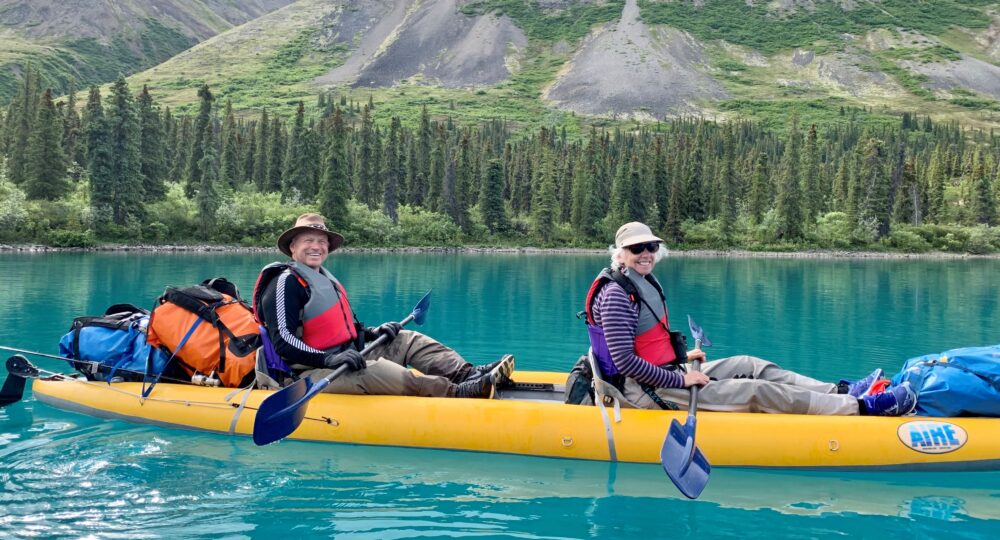
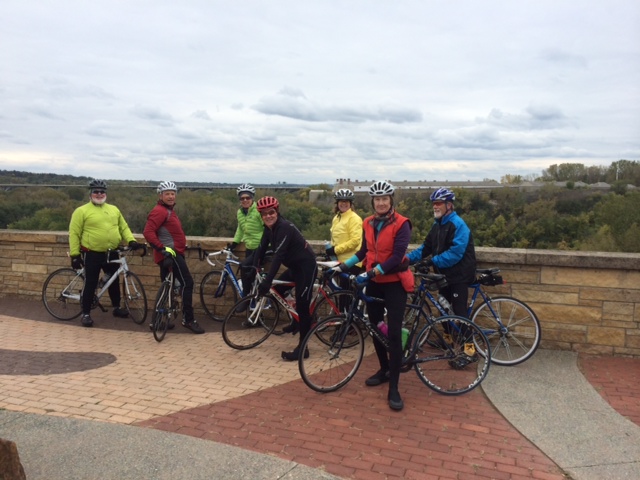
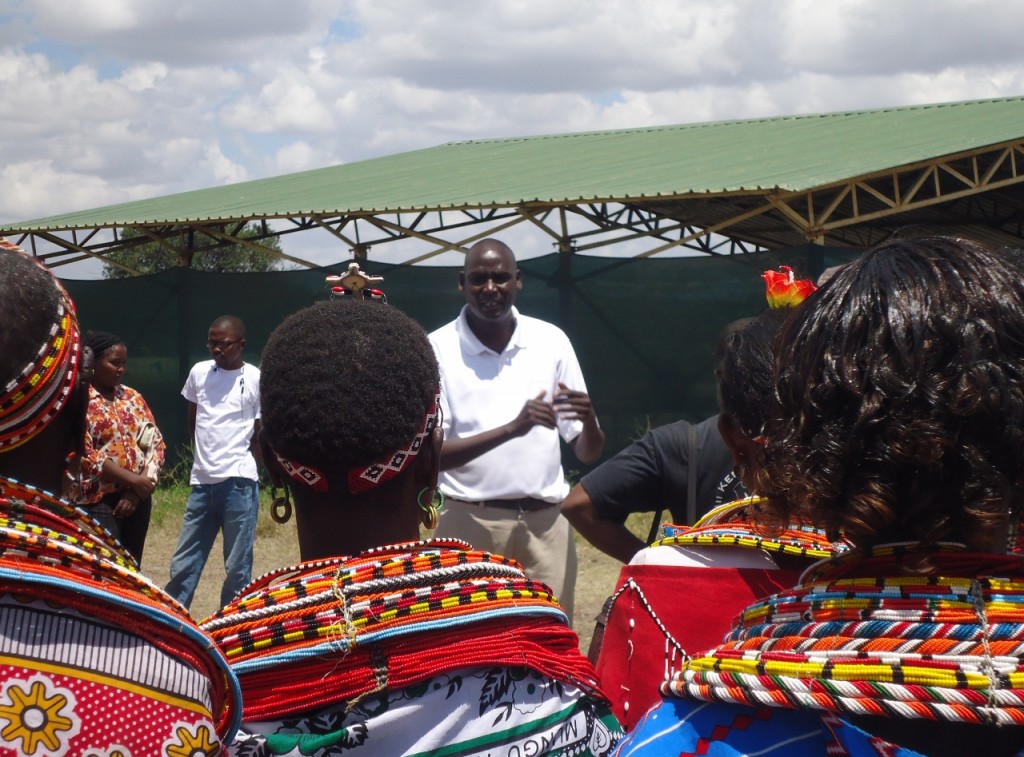
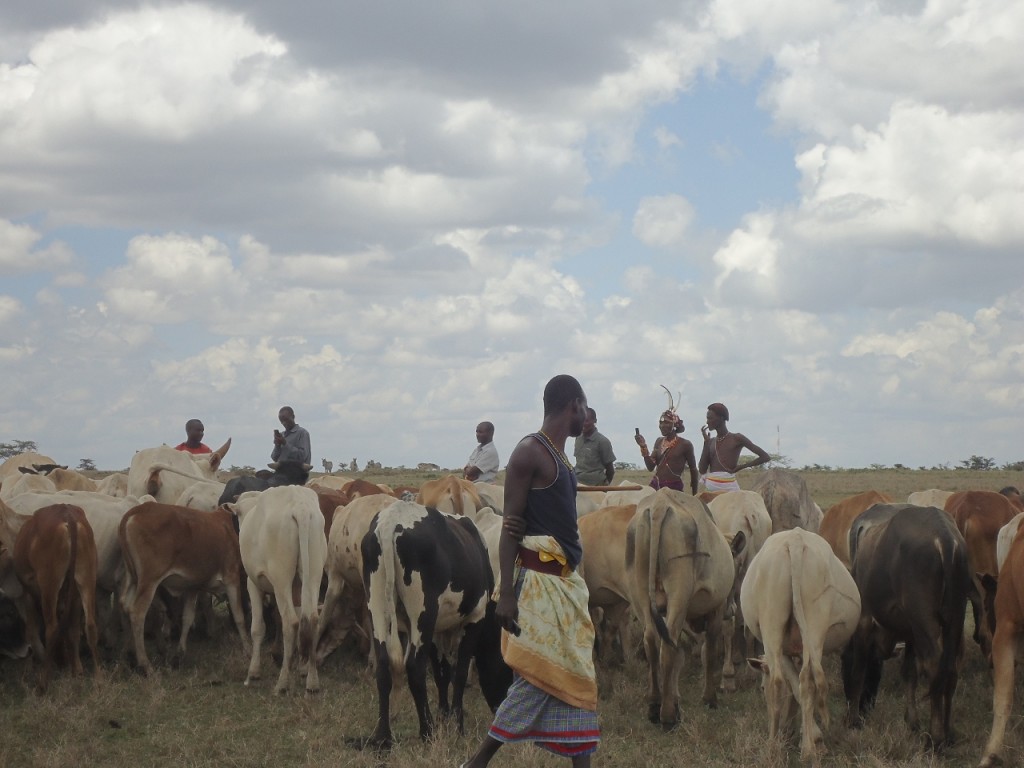
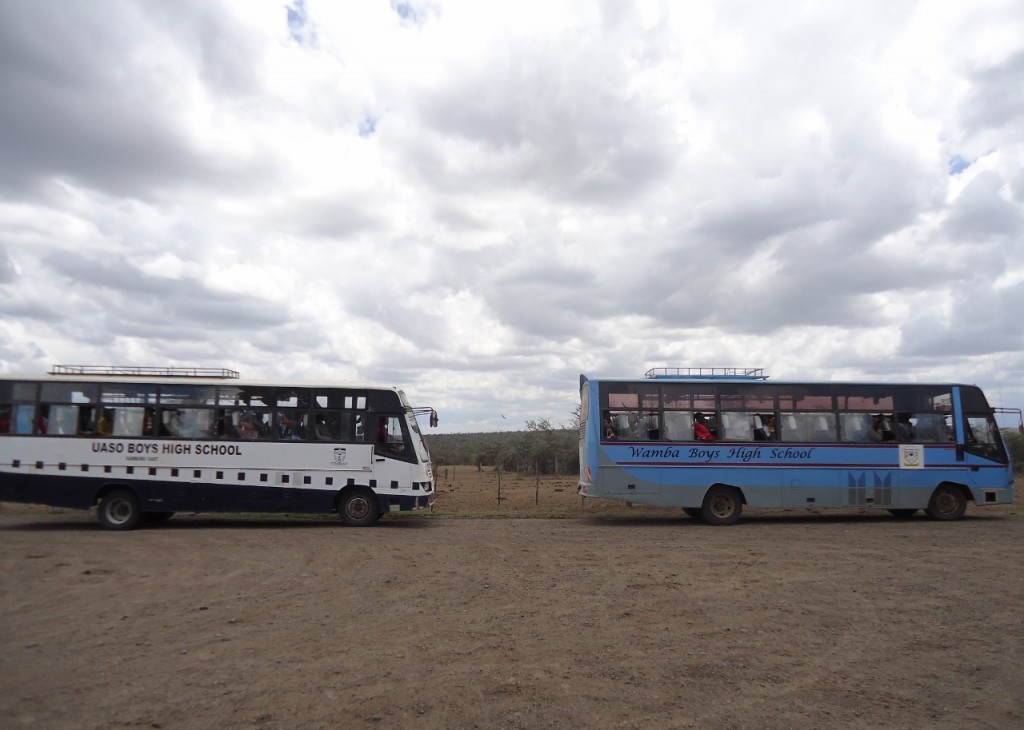
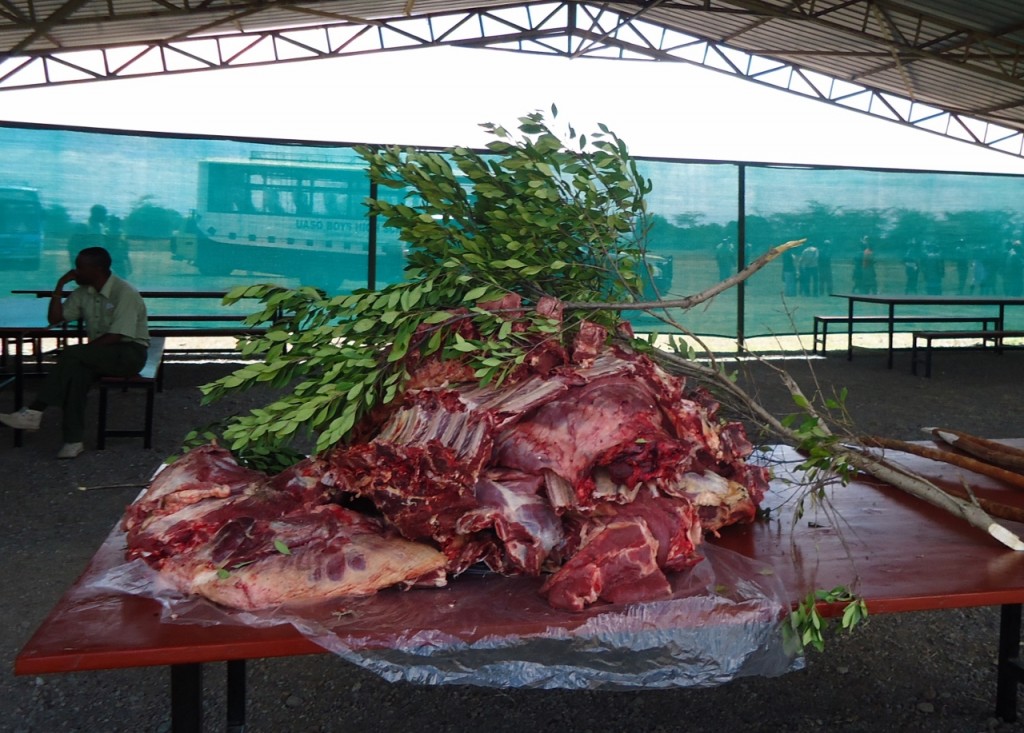
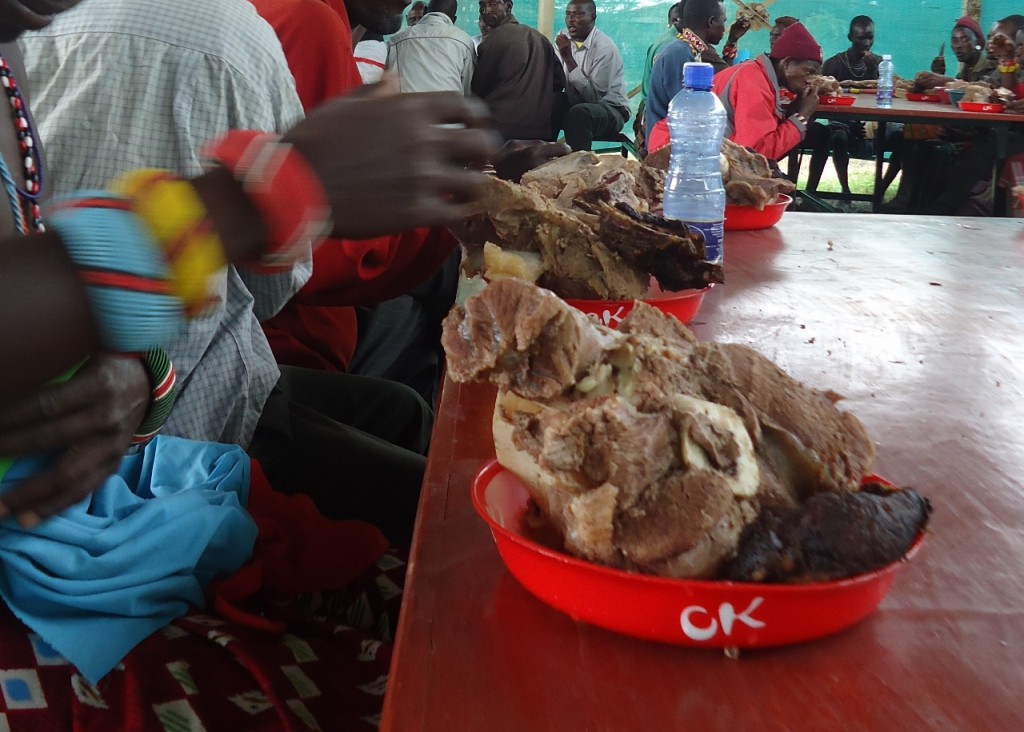
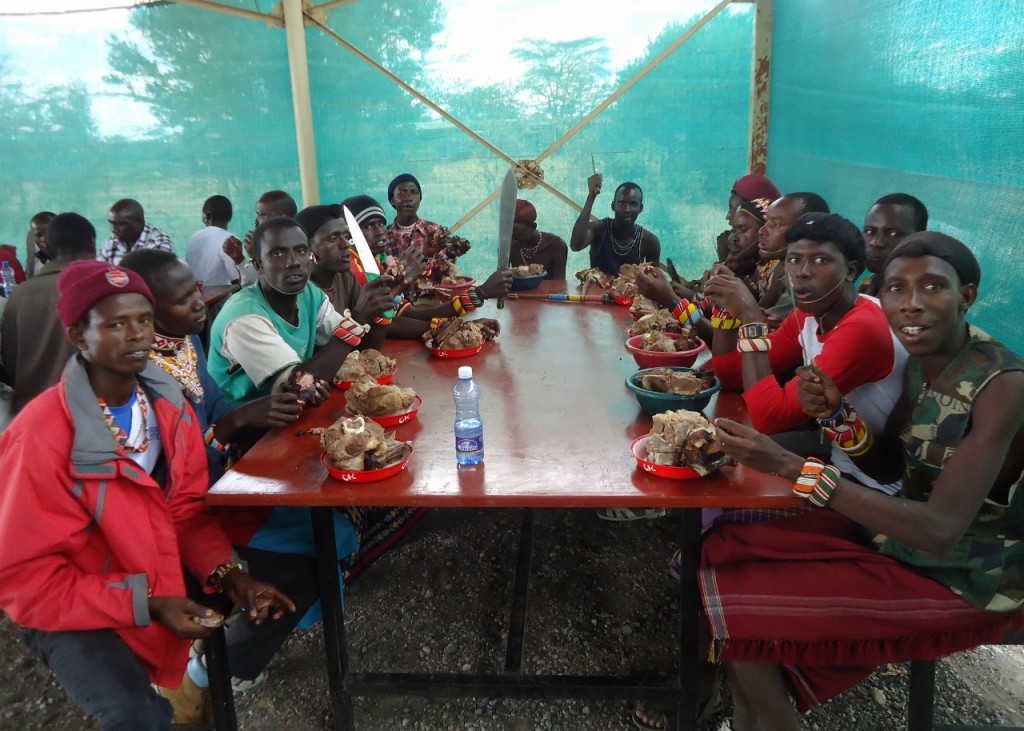
Nice to see your writing again!!
Great writing, Anne! 🙂
Nothing but beef makes me hunger for some ugali.